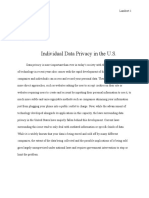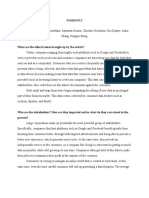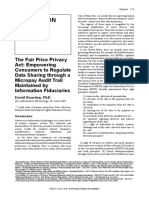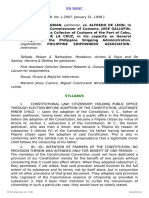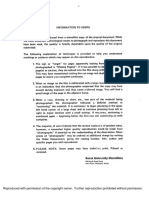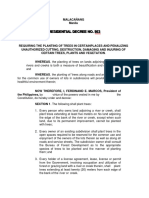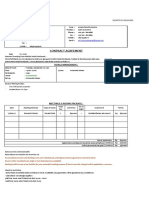0% found this document useful (0 votes)
22 views3 pagesPolicy Brief
Policy brief concerning the role of Data Brokers in Extralegal Government Surveillance
Uploaded by
bschurtz3Copyright
© © All Rights Reserved
We take content rights seriously. If you suspect this is your content, claim it here.
Available Formats
Download as DOCX, PDF, TXT or read online on Scribd
0% found this document useful (0 votes)
22 views3 pagesPolicy Brief
Policy brief concerning the role of Data Brokers in Extralegal Government Surveillance
Uploaded by
bschurtz3Copyright
© © All Rights Reserved
We take content rights seriously. If you suspect this is your content, claim it here.
Available Formats
Download as DOCX, PDF, TXT or read online on Scribd
/ 3





